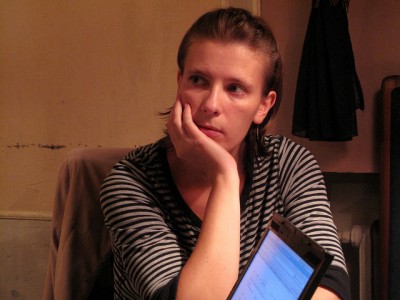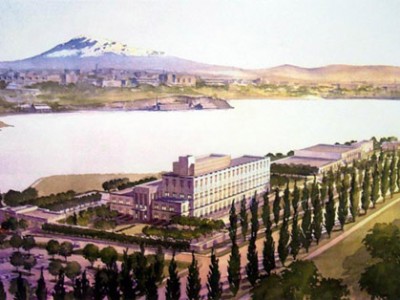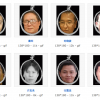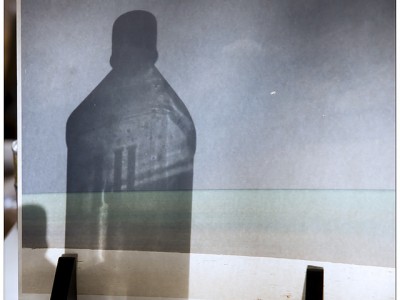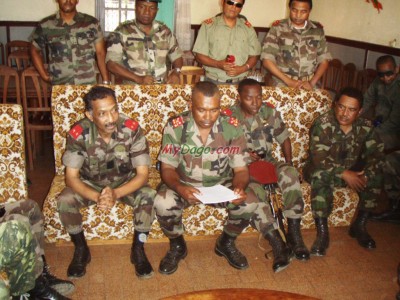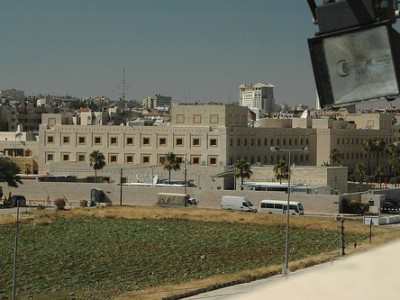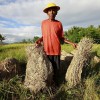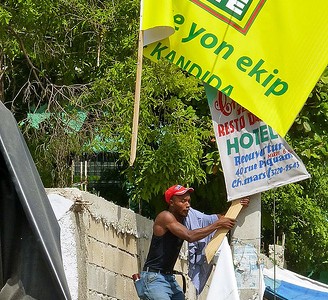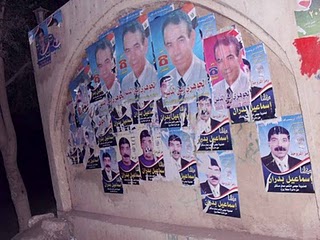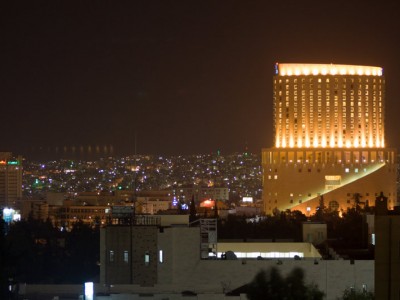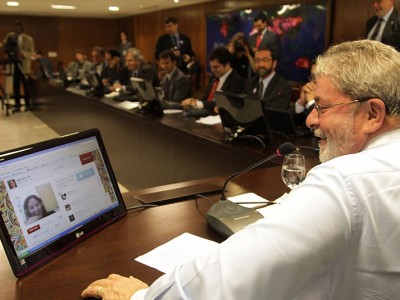Stories about Feature from November, 2010
Russia: Leading Activist Blogger on How Internet Changes Politics
Marina Litvinovich, is one of the most influential activist bloggers in Russia. In an interview with Gregory Asmolov, she shares her vision of the future role of the Internet in Russian politics.
Caucasus: Revelations & Confusion over Cablegate
As the media worldwide reveals revelation after revelation with the gradual release of over 251,000 leaked U.S. Embassy cables over the coming weeks, there were also some items of specific interest in the South Caucasus.
Russia: Competing Models of Internet Politics
RuNet becomes an arena of the competition of at least two concepts of the usage of the cyberspace: "United Russia"'s formula "Internet instead of democracy" and independent, grass-roots formula "Internet as a free environment for civil society initiatives." Alexey Sidorenko analyzed the recent trends of the role of the Internet in contemporary Russian politics.
China: “Hang the Slaves of the West”
A new website that vilifies Chinese political liberals, including 2010 Nobel Prize winner Liu Xiaobo, has caught the attention of the Chinese internet for its extreme views. Why has it not been removed by censors?
Fiji Water closes the tap and leaves Fiji
After squabbling with Fiji's government, the US-based premium water company Fiji Water closed its bottling plant and canceled its contracts. While the company's leaders hope to strike a deal with Fiji's military government, an estimated 4,000 people are affected by the closure. Fiji's bloggers and commenters provide their take on the matter.
Cambodia: Lessons from the Water Festival stampede
Cambodians are still mourning the death of 347 people in the stampede tragedy which happened last week at Koh Pich Bridge in Phnom Penh. Cambodian netizens share their reactions and recommendations on how to improve disaster management in the country
Madagascar: Wave of Arrests in the Aftermath of the Failed Coup
In the aftermath of the referendum and simultaneous failed putsch , a veritable waltzes of arrestations and investigations are shedding a sad shadow on the island of Madagascar. Malagasy citizens react to the series of concerning events that have left many of them either incredulous, cynical or just plain blasé.
South Asia: The Morality Of Exposing Others’ Secrets
WikiLeaks, an international non-profit media organization has created waves around the world by publishing 251,287 confidential documents, which detail correspondence between the U.S. State Department and U.S. embassies around the world. Some South Asian bloggers were quick to publish their opinions on this issue.
Jordan: Wikileaks’ “Cablegate” Raises Questions
The recent Wikileaks release, known as "Cablegate," featured several quotations from Jordanian officials, as well as large numbers of cables from the U.S. Embassy in Amman. Jordanian tweeters had varied initial reactions to the latest leak from the whistle-blower site.
Middle East: The Not-So-Secret US Embassy Secret Cables
While mainstream media across the Arab world gave the secret US Embassy cables released yesterday the cold shoulder, bloggers and Twitter users from the Middle East found much needed material to chew on.
Take Back the Tech to Eliminate Violence Against Women
The global campaign Take Back the Tech! started on November 25, the International Day for the Elimination of Violence Against Women. This year it is focused on developing actions that defend women's right to freedom and expression and information. Global Voices interviews Erika Smith, the Association of Progressive Communications Women's Networking Support Program communications coordinator.
East Timor: Rains threaten food shortage and disease
Without a dry season and heavy rains all year in East Timor, crops have been destroyed and farmers have planted less, threatening a scenario of food shortage. In addition, rains can cause an increase of disease in the country.
Pakistan: Aasia and Aafia – The Tale Of Two Pakistani Women
Some Pakistanis find themselves concerned over the case of Aasia Bibi, a Pakistani Christian woman sentenced to death for blasphemy, the same way as they are distressed over the detention of Aafia Siddiqui, who was sentenced for 86 years imprisonment in America.
Liveblog: Citizen Media on Haiti Elections 2010
Today (November 28, 2010), Haiti goes to the polls in an election that has been fraught with controversy and affected by the ongoing cholera epidemic. We're curating tweets and other citizen media about the events.
Haiti: Election Day
Today, Haiti goes to the polls in an election that has been fraught with controversy and affected by the ongoing cholera epidemic. With the country's most popular political party being barred from contesting, some bloggers can't help but feel that today's process is really more of a “selection” than an election.
Egypt: Much Ado About the Parliamentary Elections
With the Egyptian parliamentary elections around the corner, candidates, as well as their parties, are using all the ethical and non-ethical weapons in order to win. And Egyptian bloggers, on the other hand, are watching, reporting, and sometimes participating in the ongoing war.
Brazil: Bloggers react to wave of violence in Rio de Janeiro
A recent wave of violence has frightened residents of Rio de Janeiro and reignited a familiar public debate on security in the city. A great wave of panic, in part brought on by the mainstream media, also brings to the fore a new problem: the great proliferation of false rumors on the internet.
Jordan: Reactions to a New Government
After the announcement of Jordan's new government, Jordanians react to the new ministers via Twitter and blogs.
Puerto Rico: Bloggers Criticize Censorship Call of Calle 13 Song
The president of the Puerto Rico Telecommunications Regulatory Board described Calle 13's latest song as "obscene" and "lewd" and has invited the general public to send their complaints so she can forward them to the United States Federal Communications Commission (FCC). The Puerto Rican blogosphere reacts.
Brazil: President today, blogger tomorrow
Outgoing Brazilian president Luis Inácio Lula da Silva (Lula) was interviewed for the first time this week by a range of progressive bloggers, an event seen by many as a major step in the ongoing push for a more democratic media system in the country.
Fiji: Government explains deportation of Fiji Water boss
Fiji's government says David Roth, Fiji Water’s local representative, was kicked out of the country because he was interfering with internal affairs. Is this the real reason? What will the deportation mean for other foreign investors? And what about Fiji's bottom line?

